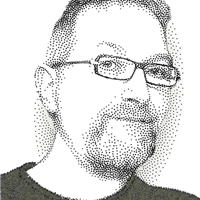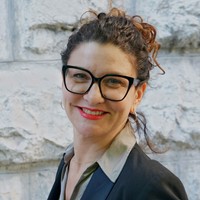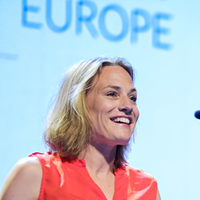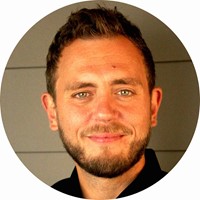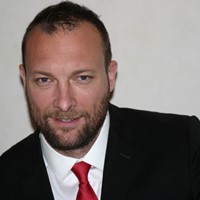




Alex Grech
University of Malta
Biography
Alex Grech is a strategist, change consultant and academic. Over the past 30 years, he has worked with multinationals, governments, NGOs and startups in sectors ranging from ICT, telecoms and neuroscience to culture, education and public policy. Following an early career in multinationals, Alex has advised organisations including the ILO, UNESCO, the European Commission, RISE, the Mastercard Foundation, Ericsson, the World Bank, the Pan-African Consortium on the Digitalisation of TVET and the Ministry for Education in Malta.
Alex is the founding Executive Director of the 3CL Foundation, a knowledge hub for a global network of institutions and educators interested in the rapid deployment of EdTech programmes based on action research, advocacy and praxis. He is a member of the strategic committee of DC4EU, a large scale EU-funded project piloting the EU Digital Identity Wallet in both the educational sector and the Social Security domain, and leading strategic communications. Alex teaches new media at the University of Malta within the Faculty of Media & Knowledge Sciences, with research interests in digital and media literacies, blockchain & self-sovereign identity, social media and power. He holds a PhD in Internet Computing from the University of Hull and is a Chartered Accountant by profession. His book Media, Technology and Education in a Post-Truth Society was published by Emerald. His latest publication, a Manifesto for Young People on Information, is being translated in several languages.
Organisation
University of Malta
Educational institution
Speaker session
PLENARY 1 : Towards Digital Commons: Charting the Course for Europe's Digital Future
Are you sure?
Do you want to register for this session?
Digital commons – non-rivalrous and non-exclusive resources defined by distributed and communal production, ownership and governance of informational capacities and technologies – have great potential to play a crucial role in making this vision reality. With a big part of free and open-source software, hardware, standards, and data fitting this definition digital commons power a large part of the internet infrastructure and servers and can be considered key components of modern digital infrastructure. This call for a reflection of their impact on the future developments of the internet and key aspects such as security, privacy, and the strategic value of digital commons in building a human-centric and trust-worthy digital future for all that is at the heart of the European Declaration on Digital Principles and rights.
The panel will discuss the opportunities and challenges in the development and maintenance of digital commons in Europe, the current investment schemes at national and European level and the possible avenues for a European approach to stimulate further the existing community of ‘commoners’.
Moderated by Monique Calisti, CEO, Martel Innovate

Adriana Groh
Sovereign Tech Fund
Biography
Adriana Groh is a co-founder of the Sovereign Tech Fund, a new programme with the German Federal Ministry for Economic Affairs and Climate Action set up to invest in open digital infrastructures. Previously, she developed a project on digital sovereignty, participation and data commons at The New Institute in Hamburg, and was director of the Prototype Fund, an innovation fund of the Open Knowledge Foundation and the German Federal Ministry of Education and Research.
Her interest lies in applying democratic principles to the field of innovation and digitalisation, which led her to co-initiate several tech projects, such as a chat app for the 2017 and 2021 federal elections in Germany and the #WeVsVirus Hackathon 2020 which saw close to 30 000 participants involved.
Organisation
Sovereign Tech Fund
Local/national government
The Sovereign Tech Fund supports the development, improvement and maintenance of open digital infrastructure. Our goal is to sustainably strengthen the open source ecosystem. We focus on security, resilience, technological diversity, and the people behind the code.
Speaker session
PLENARY 1 : Towards Digital Commons: Charting the Course for Europe's Digital Future
Are you sure?
Do you want to register for this session?
Digital commons – non-rivalrous and non-exclusive resources defined by distributed and communal production, ownership and governance of informational capacities and technologies – have great potential to play a crucial role in making this vision reality. With a big part of free and open-source software, hardware, standards, and data fitting this definition digital commons power a large part of the internet infrastructure and servers and can be considered key components of modern digital infrastructure. This call for a reflection of their impact on the future developments of the internet and key aspects such as security, privacy, and the strategic value of digital commons in building a human-centric and trust-worthy digital future for all that is at the heart of the European Declaration on Digital Principles and rights.
The panel will discuss the opportunities and challenges in the development and maintenance of digital commons in Europe, the current investment schemes at national and European level and the possible avenues for a European approach to stimulate further the existing community of ‘commoners’.
Moderated by Monique Calisti, CEO, Martel Innovate

Anthony Harrison
APH10
Biography
Anthony Harrison is an experienced independent consultant from the UK delivering and securing mission critical systems. He founded and is currently the director of APH10, a consultancy focused on helping organisations manage software risks more effectively.
He has been involved in promoting the software bill of materials (SBOM) since 2021 as a way of supporting vulnerability management, and taken part in various working groups related to SBOM, including the SBOM Forum, SPDX Defects and OpenSSF SBOM Everywhere initiative.
Anthony has also been actively promoting open-source for many years and regularly contributes to an increasing number of related projects.
Organisation
APH10
Start-up
APH10 was founded in 2022 to help organizations identify, assess, and mitigate software risks, especially those related to security and resilience.
Currently developing a product to reduce the time and effort required to assess and manage software vulnerabilities by providing an automated process which prioritises the vulnerabilities.
Speaker session
PLENARY 1 : Towards Digital Commons: Charting the Course for Europe's Digital Future
Are you sure?
Do you want to register for this session?
Digital commons – non-rivalrous and non-exclusive resources defined by distributed and communal production, ownership and governance of informational capacities and technologies – have great potential to play a crucial role in making this vision reality. With a big part of free and open-source software, hardware, standards, and data fitting this definition digital commons power a large part of the internet infrastructure and servers and can be considered key components of modern digital infrastructure. This call for a reflection of their impact on the future developments of the internet and key aspects such as security, privacy, and the strategic value of digital commons in building a human-centric and trust-worthy digital future for all that is at the heart of the European Declaration on Digital Principles and rights.
The panel will discuss the opportunities and challenges in the development and maintenance of digital commons in Europe, the current investment schemes at national and European level and the possible avenues for a European approach to stimulate further the existing community of ‘commoners’.
Moderated by Monique Calisti, CEO, Martel Innovate

